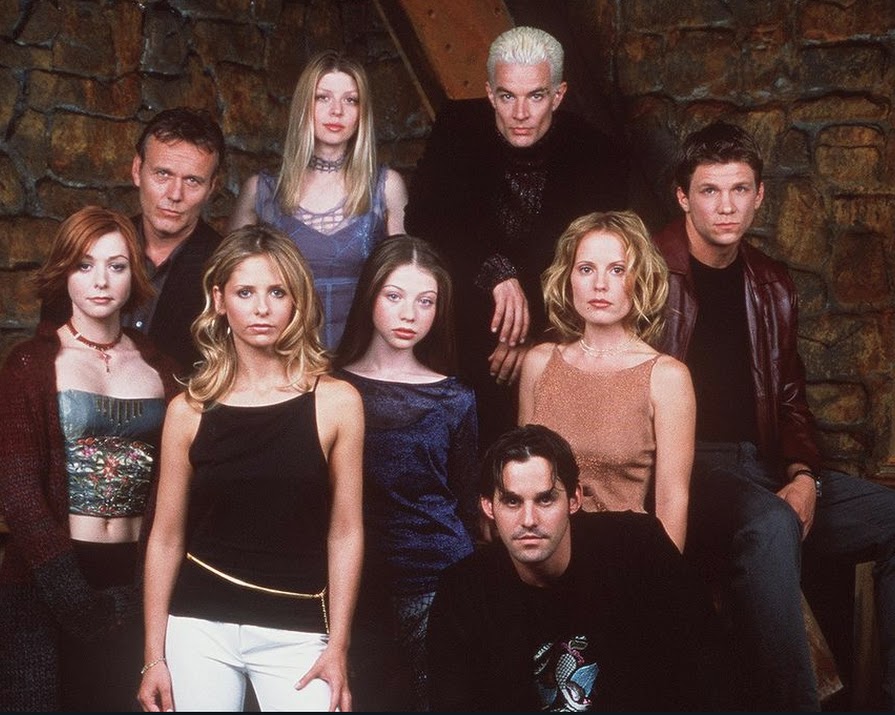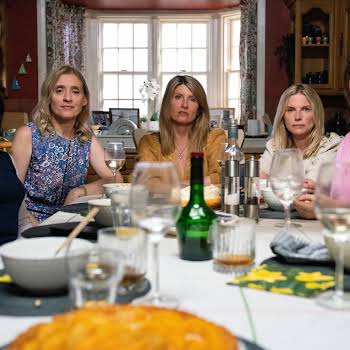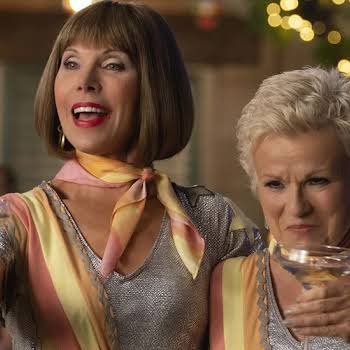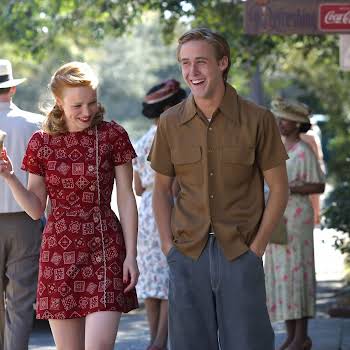
Buffy The Vampire Slayer is trending during #Lockdown. Here’s why you MUST re-watch it
By Jennifer McShane
07th Apr 2020
07th Apr 2020
As the cult series trends on social media, we look at the feminist show that encouraged women around the world to embrace their strength and power.
It’s hard to believe that Buffy The Vampire Slayer is over two decades old. I’ve been watching the show trend on social media today; heavily featured in ‘you can only save two series’ type polls as we embrace the concept of re-watching our cult favourites. I promptly pulled out my well-worn boxsets; even listening to the theme music prompted a flood of nostalgia. Over two decades. Various elements of the series haven’t stood the test of time – the 90s bangs, all of the outfits in the first season and hammed special effects up to season three – but Buffy herself is timeless.
For me and a generation of women, the feminist show was the first to tell us, outright, that it was more than okay to be powerful and strong as a woman – that in fact, you should expect and demand to be considered as such.
“It was the first time I’d ever seen this projected so perfectly on screen; a female character who wasn’t demeaned, whose being didn’t depend on a man – instead she got stronger while going it alone.”
Feminist work
It’s only when it reached the end of its final seventh season that many would appreciate it as a feminist work. It started out quietly – in fact, no one had much to say about it when it first aired – the story of an ordinary girl with an extraordinary calling to fight evil, conceived by creator Joss Whedon as a way to subvert a misogynistic horror trope (though his past actions have deemed him a problematic figure): the helpless, doomed blonde.
Buffy Summers with her loyal team of friends behind her – Willow, Xander and the always-wise Giles – just didn’t take any. But the series didn’t just battle demons, it merely used that as the basis to confront the demons we all battle in life – and grew more complex as each season progressed.

And hence, it had mass appeal: from the early throes of first love, doomed relationships, bereavements and even rape, it dealt with tough topics and had something everyone could identify with.
Related: A compelling take on female friendship: ‘My Brilliant Friend’ should be your next TV obsession
Ahead of its time
Fans debated the merits of the show’s men – remember all the arguments over Team Angel and Team Spike? (Team Spike forever) – obsessed over Oz and questioned some of Buffy’s choices – she didn’t always get it right –Riley? Still no – and we were even privy to the early warnings of cyber romance.
Many will recall the telling of how a relationship could change once sex was added in – the show’s variation was depicted as the one-night stand gone wrong (using a monstrous metaphor), something women the world over could identify with. And the brilliant Once More With Feeling musical extravaganza took the all-singing/all-dancing concept before it ever went mainstream. This was a show, despite its background as a substandard B-movie and high-school setting, which was always ahead of its time.
“Despite centering around female empowerment, the show transcended age and gender”
The heart and soul (no pun intended) of the show was, of course, all down to the extraordinary talents of Sarah Michelle Gellar – hers was a flawed, complex, not-always-likeable female character and I can’t think of anyone else who would have translated this so well on screen.
Complex character arc
Her character arc was magnificent; she went from being selfish and spoiled at the beginning, making her own choices – fate of the world be damned – to always putting others first. She shouldered her responsibilities as she became an adult: trying to cope with the loss of her mother, negating a violent relationship and providing for and raising her younger sister until the series finale meant the world was saved (again) as a result of those sacrifices.
View this post on Instagram
Credit is also due to Whedon and his remarkable skilled team of writers – they didn’t do what so many did before and take a fantastic character and seal her fate in an untimely death (well, in fairness, they always brought her back) as became the case for Jen in Dawson’s Creek or make her unrecognisable a la the modern, painfully self-entitled Rory Gilmore in its series reboot – they kept her real; complex, imperfect – always herself. She was a powerhouse of a hero, never relying on a man to save her – it was she who saved them.
Game Changer
For all these reasons, the show resonated two decades ago and it still resonates now. Fans still write of how the series changed their lives, the cast still talk about the remarkable endurance of the show – it transcended age and gender, and despite centring around female empowerment, it always felt inclusive.
The show was extraordinary. So make sure you take the next few days to watch and reminisce. Innocence (Season 2), Consequences (Season 3), The Body (Season 5), Once More, with Feeling (Season 6) and the series seven finale Chosen are, in this writer’s humble opinion, among the best episodes.
Main photograph: @PopCrave






















